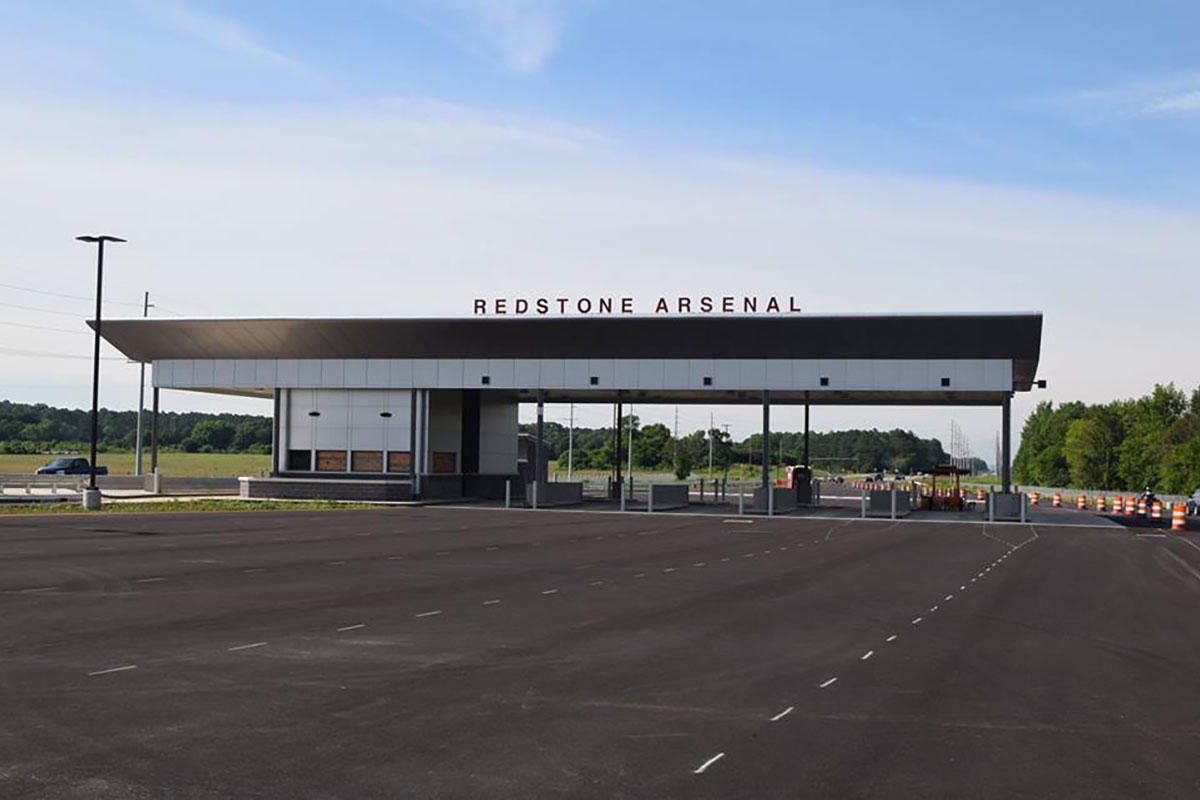
AURORA, Colorado — A decision on whether the headquarters for U.S. Space Command will remain in Colorado or move to Alabama has been held up because the Department of the Air Force is doing an extra layer of review, delaying a final announcement that has dragged on since the Trump era.
Air Force Secretary Frank Kendall said in response to a Military.com question Tuesday that the final decision will come “fairly soon” but further analysis is needed.
“I hoped to make a decision and make an announcement earlier,” Kendall said during a round table at the Air and Space Force Association’s Air Warfare Symposium. “We’re doing some additional analysis; we want to make very sure we got this right and have a well-defended decision.”
Read Next: Air Force Will Likely Miss Recruiting Goals, Service Secretary Says
Previously, officials said an environmental study, which concluded in late September, was one of the last steps required before a decision could be made. But Kendall’s comments Tuesday pointed to a variety of other issues still being examined by the Department of the Air Force.
Kendall said that one factor would be potentially putting two combatant commands in Colorado, which is already home to U.S. Northern Command. He added that his office is doing “sensitivity analysis,” a type of financial modeling that looks at what-if scenarios to measure risks.
The fight over where to locate Space Command’s headquarters has also spilled into the halls of Congress.
Last month, Sen. Michael Bennet, D-Colo., gave an impassioned floor speech criticizing the decision to move the headquarters. He argued that moving the command from Peterson Space Force Base in Colorado Springs to Redstone Arsenal in Huntsville, Alabama, would cause further delays in setting up a permanent headquarters as tensions continue to rise with China.
“I’m on the floor today to remind people here of the importance of this issue, the urgency of this issue, not just for Colorado, not even for Colorado, but for the country as a whole and for our national security as a whole,” Bennet said Feb. 15. “That in the end is what the American people deserve here, because our opponents and our competitors in space are not waiting for us to get out of our own way.”
Sen. Tommy Tuberville, R-Ala., has been blasting the delay on Twitter for weeks, saying the reconsiderations of former President Donald Trump’s original decision to shift the HQ to Redstone Arsenal are politically motivated.
“Political attempts to derail SPACECOM’s move to Alabama are nothing but a case of sore loser syndrome. Those standing in the way are relying on red herring arguments instead of the facts,” Tuberville said on Twitter last week. “Check the scorecard: Huntsville is the #1 spot for U.S. Space Command.”
In January 2021, during the last days of the Trump administration, the Department of the Air Force selected the Army’s Redstone Arsenal in Huntsville as the preferred location for Space Command’s permanent headquarters.
Since that announcement, members of Colorado’s congressional delegation in Washington have been fighting to have the decision reviewed in hopes of keeping the base, as well as 1,400 jobs and millions of dollars of economic impact, in their home state.
In August 2021, while speaking on an Alabama radio show, Trump said the move was his decision, which sparked speculation that the former president may have intervened in the process for choosing the base, something that could give ammunition to legal challenges.
“Space Force — I sent to Alabama,” Trump told the “Rick & Bubba” radio show at the time. “I hope you know that. [They] said they were looking for a home, and I single-handedly said, ‘Let’s go to Alabama.’ They wanted it. I said, ‘Let’s go to Alabama. I love Alabama.'”
Two watchdog reports, requested by members of Colorado’s delegation in Washington, followed. They did not point to any major issues with Huntsville as a location for the base, but did scrutinize the process for choosing the location.
This past May, the findings of a Department of Defense inspector general report said that, while the selection process was marred by shoddy recordkeeping, the ultimate decision to choose Huntsville was “reasonable.”
And in June, the Government Accountability Office released a report saying that Space Command’s move from Colorado to Alabama was driven by an unorganized and unclear process. While that report did not comment on or analyze whether the choice of Huntsville as the home of Space Command was acceptable, the congressional watchdog organization did express concerns about “significant shortfalls in its transparency and credibility,” as well as the “appearance of bias” in the decision.
The GAO report did not address whether Trump, or any senior military official, was responsible for the ultimate selection of Redstone Arsenal.
The Supreme Court’s ruling last year to overturn Roe v. Wade — known as Dobbs v. Jackson Women’s Health Organization — has also been seen as potentially impacting the decision to move Space Command from Colorado to Alabama.
Moving from Colorado, where abortion access is unrestricted, to Alabama, where it is illegal with limited exceptions, could change the quality of life for service members assigned to the command, as well as harm the military’s retention efforts, Bennet previously told Military.com.
“I’m deeply concerned about how the Dobbs decision and state abortion bans will affect Space Command’s workforce and readiness if the command leaves Colorado,” Bennet said in an emailed statement to Military.com this past August.
— Thomas Novelly can be reached at thomas.novelly@military.com. Follow him on Twitter @TomNovelly.
Related: Senator Asks Biden to Block Relocation of Space Command, Citing National Security Worries
Show Full Article
© Copyright 2023 Military.com. All rights reserved. This material may not be published, broadcast, rewritten or redistributed.
Tags: Additional Air Analysis Command Decision Delayed Due Force Military Secretary Space Space Force Space Force News Working Warriors









